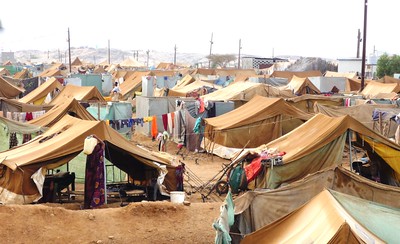FOCUS on Extended Violence: Yemen
Tristan Radcliffe
Staff Writer
Amid what the World Food Programme (WFP) calls the worst humanitarian crisis in the world, BBC News reports that peace talks between the Iranian-backed Houthi rebels and the Saudi coalition are going well and could lead to another ceasefire in Yemen.
The Yemeni civil war has killed tens of thousands and has left over two-thirds of the country malnourished and relying on aid, the WFP reports. While BBC News indicates that some are hopeful that a potential ceasefire might spell the slow decline of the war, many advocates worry the peace agreement will not come soon enough.
According to the Council on Foreign Relations (CFR), the Yemeni civil war began in 2014 after Houthi insurgents (a Shi’ite rebel group) took the capital city of Sana’a, ousting President Abd Rabbu Mansour Hadi. Saudi-led coalition forces entered the conflict alongside the government to push Iranian interests out of the country. CFR also reports that multiple Iranian weapons shipments have been seized in the Gulf of Aden, leading the Saudi coalition to implement an air, land, and sea blockade of Yemen that has crippled the flagging economy.
The humanitarian crisis caused by fighting in the country and the blockade by coalition forces cannot be overstated. The United Nations Population Fund reports that 21.1 million of the country’s 33 million people require humanitarian assistance. One of the leading causes for this is the blockade by the coalition forces around Yemen. The goal of the blockade was to stop weapons from getting into the country, according to Human Rights Watch, but instead, it prevented fuel, food, and medical resources from reaching civilians. Humans Rights Watch continues that these actions violate the laws of war concerning the treatment of civilians.
Both the Houthi rebels and the Saudi coalition have been accused of war crimes that they vehemently deny committing. The coalition has been accused of committing double-tap airstrikes, according to Reuters. This accusation alleges that when the Saudi coalition airstrikes a target, the fighters then come back around and initiate a second attack once people come to help. These airstrikes work to terrorize civilians and sow discord within the Houthi-controlled regions. PBS reports that the United States sold weapons to Saudi Arabia that have been used to kill 87 civilians and wound another 140 over the past year alone.
Human Rights Watch reports that Houthi groups fired rockets and artillery into civilian areas of the Marib governance, displacing thousands of civilians. Reuters also reports that the Houthis had launched attacks targeting civilians within the country and committed acts of terror against Saudi civilians. The insurgent group had the civilian sections of the region for over two years, causing deprivation. They have also been accused of executing Prisoners of War (POWs) by Human Rights Watch and putting POWs under extreme deprivation to get answers.
The peace process has been slow and painstaking over the last eight years. Reuters reports that Houthi leaders believe the last round of talks in April could bring the two sides closer to concluding the hostilities. The two sides have reached tentative agreements about opening Houthi-controlled parts of the country and the Sana’a airport. The only two sticking points left are that the Houthis are requesting payment for civil servants, including military leaders, from the government’s oil money and are requesting hard dates for when the Saudis would pull forces from the country. The recent talks between the Houthi and the Saudi coalition have been paired with the talks between Saudi Arabia and Iran to restore ties and end the proxy war in Yemen. Hopes are high that the next rounds scheduled will produce a further ceasefire and the basis for a lasting peace between the coalition and the Houthis.
Yemen has become the largest humanitarian crisis since the war started. Two-thirds of the country is on the verge of starvation because of the cyclical nature of war crimes and blockades set up by both sides of the war. The extended conflict has left tens of thousands dead and millions in crushing deprivation and will to continue to do so until the goals of the recent peace talks are realized.
Image Courtesy of EU Civil Protection and Humanitarian Aid


